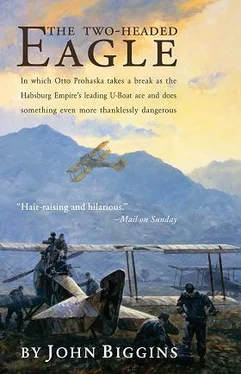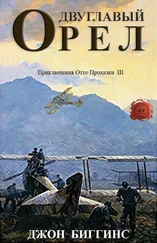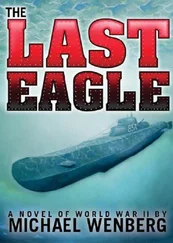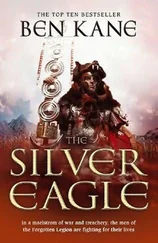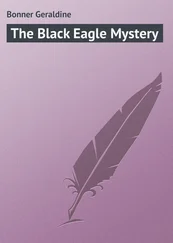“Of course,” he had said to me in the mess tent after supper, “it was a let-down not to be able to serve in the German Army, especially after I started getting interested in flying. Their air force is about five years ahead of ours in every respect. But quite frankly it doesn’t make a lot of difference to me now. We’re all fighting for the Greater German Reich, and wearing an Austrian cap badge signifies as little for me as wearing that of Bavaria or Saxony. Germany and Austria are being welded together now into a single billet of steel under the blows of the enemy, tempered in the forge of war into a weapon such as the world has not yet seen. True, I’d have more fun flying on the Western Front against the Britishers and the French. But there: I think we’ll have sport enough here on the South-West Front before long, once the Americans come into this war. And anyway, I’m glad in a way to be defending this region.”
“What, the Kustenland?”
“No, Carinthia, my home province: defending the southern marches of Germany against the Latins and Slavs. That was something I could never convince them of in north Germany: that we Germans who live on the frontiers of the Reich have a far keener awareness of what it means to be German than those who sit comfortably in Darmstadt and Mannheim and never look into the eyes of the wolf-packs that surround us.”
“You seem to have a very clear idea of what you are fighting for,” I remarked.
“I certainly have. But what are you fighting for, Prohaska, if I might ask?”
“Me? I can’t say that I’ve ever thought much about it. I just fight for the House of Austria because that’s my job and it’s what I swore on oath to do. Anyway, my time’s been so taken up thinking about how to do it these past two years that I’ve never wondered a great deal about why. I’m just a career naval officer; things like that are for the politicians to decide.”
“Precisely. That’s the trouble, if you’ll excuse my saying so: you professional officers always fight bravely, but sadly you lack any very deep appreciation of what this war is about. Probably I’d have been the same if I had grown up in this corpse-empire of ours and been through a cadet school. But as it was I saw the future in Germany—the factories, the cities, the laboratories. And I also had time to read a great deal when I was laid up in hospital: Nietzsche, Darwin, Treitschke, Bernhardi, the lot. It was then that I first fully understood why I was lying in bed with half my face missing; and I swore to dedicate my life to Greater Germany. Our German revolution is being created in this war. Nothing can stop it now—not even defeat—and it’ll turn the world upside-down before it’s finished.”
“You sound like a socialist to me.” He smiled, his mouth twisted to one side by his rebuilt jaw. I could see how sweet his smile would have been before his face was wrecked. His eyes were not those of a crazed fanatic but of a seer; a dreamer of dreams.
“Perhaps I am, my dear Prohaska. But a German socialist second and a German warrior first.” It may have been ill-natured of me, but I could not help interjecting at this point that some might consider “Svetozar von Potocznik” a pretty odd sort of name for a warrior of the Greater German Reich. But he had obviously been asked that question before. He laughed, and answered me with his usual calm earnestness. “We all have to have a name, Prohaska, and names are handed down in the male line except, I believe, in a few odd little countries in Africa. The ‘Svetozar’ bit is rather awful, I agree: my mother was greatly addicted to romantic novels when I was born and she thought that it went better with ‘Potocznik’ than ‘Willibald’ or ‘Englebert,’ which were my father’s choices. As to the ‘Potocznik,’ it doesn’t argue for any but the tiniest element of Slav blood. Tell me Prohaska, how long do you think people in Europe have been using surnames?”
“I really couldn’t say. Since the fifteenth century perhaps? Up in the Tyrol I believe they still give people names according to their occupation.”
“Good, the fifteenth century: say twenty generations ago to be on the safe side?” I nodded my assent. “Well then, I worked it out recently and that gives me a theoretical possibility of something over two million ancestors. Only one of those needed to have the name “Potocznik” to have passed it on to me. And anyway, there’s no certainty that he was a Slav: he could have been a German kidnapped in a border raid and taken into serfdom by the Croats. No, there is not the slightest doubt in my mind that I am of purely Germanic stock.”
“I see. So where precisely does that leave me in this crusade for the Greater German Reich? After all, I’m a Czech on my father’s side and a Pole on my mother’s, and as you can hear I still speak German with an accent.”
“Well, since you ask me I would have said that by becoming an Austrian officer you have automatically cast your vote for Germanic culture.”
“I see. And will you let me in?”
“Of course: to be a German is not only a matter of blood and soil but of culture. The Romans—who were the earliest Germans by the way: I read a book about it recently—never had anything against barbarians becoming Roman citizens, after they had given sufficient proof of their loyalty. The border peoples like the Czechs and the Poles will be offered a choice after this war: either become part of the German Reich or become German protectorates outside it—or if you don’t want either of those alternatives then clear off to join your Slav brothers beyond the Urals.” “And do you think that they’ll accept that choice willingly?”
“I don’t doubt it: look at all the Czechs in the k.u.k. Armee who’ve been voting for Russia lately by raising both hands. As for the rest, I don’t imagine that they’ll have much choice. Did the Britishers ever ask the people of India whether they wanted to be part of their empire? The mark of a truly vigorous nation is that it has a way of resolving these matters without the need for ballot boxes. The British and French only became interested in democracy once they had taken as much of the world as they wanted by force.”
“But surely, Potocznik, haven’t you noticed that in this pan-German crusade some of our best fighters are Slavs? Look at the Bosnians for instance. Or the Slovenes: I doubt whether you’d find a braver and more loyal people in the entire Monarchy.”
He snorted. “Brave and loyal: you certainly wouldn’t have found them very brave and loyal if you’d seen them back in Pravnitz during the gymnasium affair. The sheer colossal impudence of it: a silly little ethnographic relic of a people with no literature and no history and no culture of their own, challenging the rights of a major world nation. It’s just too absurd. There’s no such people as the Slovenes, and their language is a fraud: a monkey-jabber made to look like a proper language by a German-speaking bishop—a Jewish convert, by the way—to create enemies for Germany and keep it under the thumb of Rome. The Slovene Nation, indeed—not a million of them, and nothing but a lot of illiterate yokels in felt hats and silly costumes. For them to claim equality with the nation of Goethe and Schiller and Beethoven is like a sparrow claiming equality with an eagle. Darwin proved that there is no such thing as equality in nature, only the stronger and the weaker.”
“Do I take it, then, that you propose shooting all the Slovenes once we win this war? It seems pretty shabby thanks after the way they’ve fought for us.”
“Of course not: the so-called Slovene people would continue to exist for as long as it wished to. But with no equality in German-speaking areas, that’s for sure, and with German as a compulsory subject in all their schools from the lowest level up.”
Читать дальше
